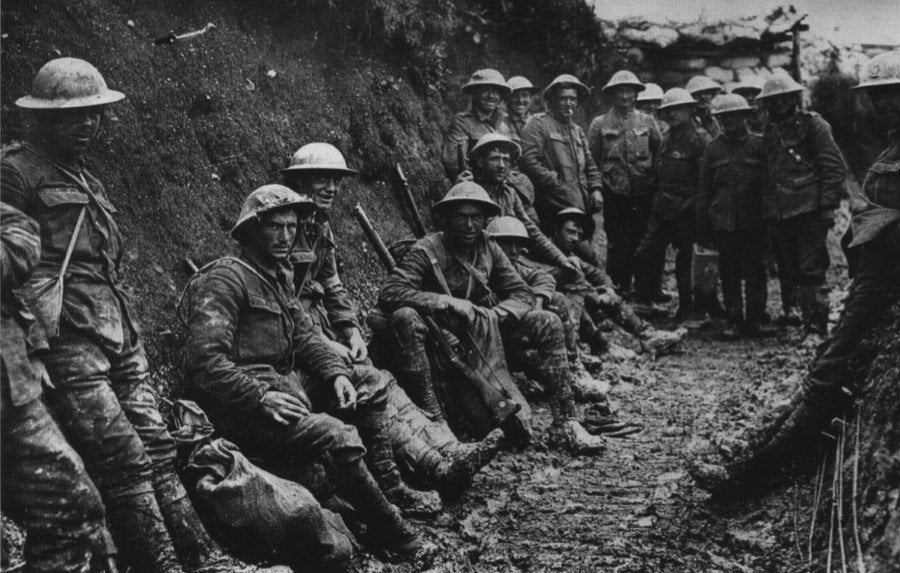World War One
By RJ Young
Imagine you’re off the Danish coast desperately fighting a massive fleet of Germany’s warships in one of the most horrifying wars of all time. That’s what the brave, and quick-witted British sailors had to endure during the battle of Jutland 1916. Jutland was one of many battles that would help lead to the end of the first word war. World War One was the longest and bloodiest wars of its time and would lead to millions of lives lost and families destroyed. The war was truly terrifying but in order to get a better understanding of it we need to know how it began.
It all started august 4 1914 in Austria- Hungary when the archduke, Franz Ferdinand, was assassinated. The killer would be identified as Gavrilo Princip and was sent by the Serbian government. Serbia and Austria-Hungary already hated each other because of land and territory disputes. When Austria found out the killer was Serbian, they weren’t pleased. Serbia was given two options. one, allow Austrian investigators to operate in Serbia to find who ordered the assassination or, two go to war. Serbia ended up choosing war, that sparked the beginning of WW1, and with war comes alliances.
The first alliance was made very early, the triple alliance. The triple alliance was formed in 1882 and was kept a secret. It consisted of Germany, Austria-Hungary, and Italy. When the assassination happened, Germany agreed to help, but Italy left the group in fear of war. Once war was declared more alliances were formed. There were the Allies, and the Central Powers. The Allies were mostly made up of France, Russia, Britain, Serbia, and Japan. There were other countries that supported the Allies but those were the main countries. The four countries that formed the central powers were Austria-Hungary, Germany, Ottoman-Empire, and Bulgaria. Though there were two sides only one could come on top, that would be done through combat.
There were lots of different battles but I’m only going to talk about two, the first battle, and the final battle. The first battle would take place September 6, 1914, and was fought in France. It was named the first battle of Marne, and it took place on the western front. It would also lead to the first victory for the Allies. Total death count was 250 000 and around two million soldiers participated. The final battle fought in WW1 was the battle of Amiens. Before the battle all of the Central Powers except for Germany had surrendered, leaving Germany helpless as the Allied forced swept in. It was a series of battles and by the end of it Germany’s troops were exhausted, so the Allies won. The Germans were greatly outnumbered. Even their military chief said, “were being depressed down to hell”. In the end most German soldiers were wise enough to surrender. Though that battle ended the fighting there were still other problems, such as what to do with the Central Powers, and the aftermath of the war.
All of the countries who participated in the Central powers were not allowed a big military, and had to pay large amounts of money to the allies after the war. There were also the civilian sacrifices during the war, they needed to build and harvest supplies for their countries. They also had little to no wheat, sugar, flour, or meats for the duration of the war as well as some time after. In total around 13 million civilians were killed, and around 8.5 million soldiers were killed. There were also millions of houses destroyed leaving people homeless. All the farms and cattle that were lost would leave food scarce in some communities.
World war one was one of the deadliest wars to be fought and no one wanted a repeat. That’s why the central powers were only allowed a small military. However even with all the measures in place it happened again WW2. World War One was truly terrifying and was one of the darkest times in history. I couldn’t imagine what the soldiers and civilians had to go through after the war.
Work cited
“World War I.” Britannica School, Encyclopædia Britannica, 17 Mar. 2021. school.eb.com/levels/middle/article/World-War-I/110198.
https://thecanadianencyclopedia.ca/en/collection/first-world-war
https://www.veterans.gc.ca/eng/remembrance/information-for/educators/quick-facts/first-world-war



